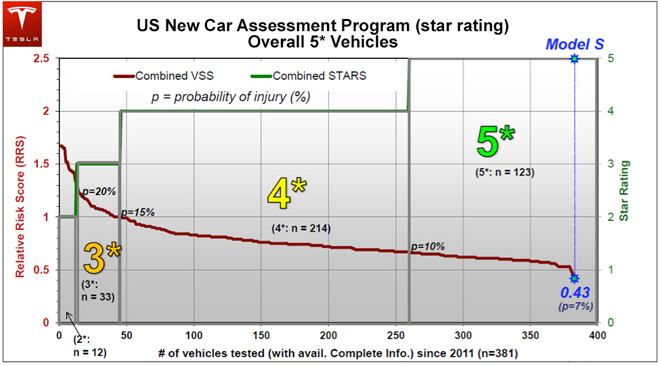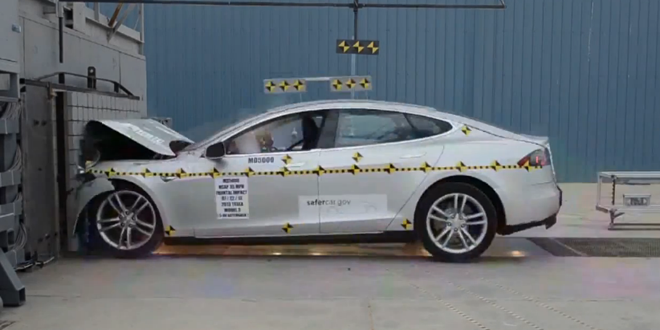They’re quieter, cleaner and more fun to drive. Now it’s becoming apparent that electric vehicles are safer, too.
The National Highway Traffic Safety Administration (NHTSA) has awarded the Tesla Model S a 5-star safety rating, not just overall, but in every subcategory, a distinction that only one percent of all cars tested by the feds have achieved. In the overall Vehicle Safety Score provided to manufacturers, the Model S achieved a new combined record of 5.4 stars.


Tesla designed the Model S “from the ground up” as an electric vehicle, and this gives it a couple of advantages over legacy vehicles in the safety department. The trendsetting sedan has no engine block in the front, which means it has a longer crumple zone to absorb an impact. Tesla compared a frontal crash to jumping into a pool from a great height – it’s better if the pool is deep and has no rocks on the bottom (just don’t store any big heavy objects in the frunk).
Another safety advantage is the fact that the Model S’s battery pack is mounted below the floor pan, which gives the car a very low center of gravity, and apparently makes it almost impossible to roll over.
Of course, Model S is a pricey luxury car that competes with such famously safe brands as Volvo and Mercedes, so a stellar safety rating is something that most buyers will expect. However, the low center of gravity and lack of an engine in the front are attributes that it shares with other purpose-built EVs.
Tesla also noted that the Model S lithium-ion battery did not catch fire at any time before, during or after the NHTSA testing, nor has any production Tesla battery ever caught fire, despite several high-speed crashes.
Source: Tesla



















































